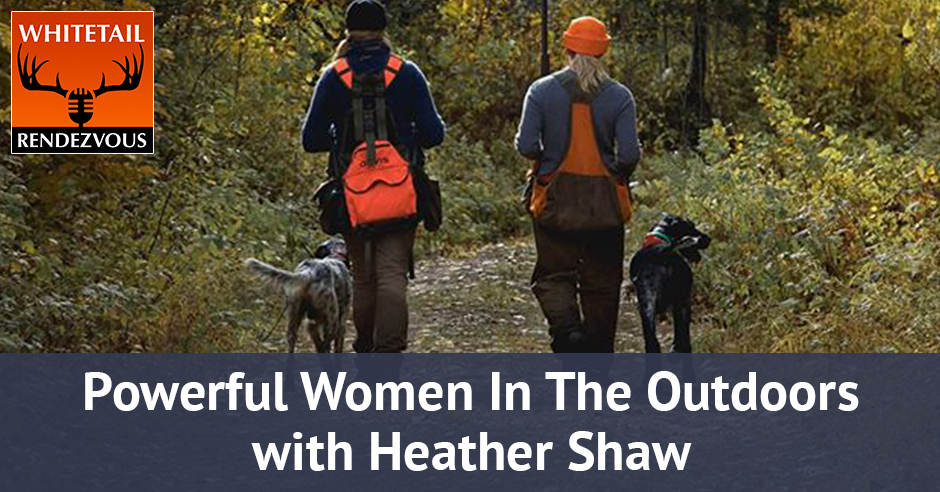
—
Listen to the podcast here:
Powerful Women In The Outdoors with Heather Shaw
I’m super excited because Meadow Kouffeld is my co-host for 2019. Meadow and I got together when she was a finalist for Extreme Huntress. We talked and I asked her if she would come on board with Whitetail Rendezvous to talk to women in the outdoors. One of her good friends is Heather Shaw. Meadow, introduce Heather and get the conversation rolling.
Heather Shaw is the regional biologist for the Ruffed Grouse Society and American Woodcock Society in Michigan. She can get into the states that she covers. We met initially when I was a regional biologist for the Ruffed Grouse Society here in Minnesota. We bonded over fire towers and habitat tours up at Red Lake WMA, which is my old graduate school stomping grounds. I found a pretty deep connection to Heather in a very short amount of time. I’m super pleased to have Heather join us here and talk about conservation in the outdoors. Thanks, Heather.
Thank you both for having me. I’m excited to be here.
One of the things that we connected over was hunting. You’re a lady that is an avid outdoorswoman, hunter, angler and previous barrel racer and something you would like to return to it at some point in life. How about we bonded over some hunting stories. One of the ones that impressed me was this archery elk hunting story that you had told me back in the day.
I can elaborate on that as well. I definitely agree with you. We did have a good connection and a deep-rooted passion for the outdoors that brought us together immediately. Our career paths have been the same and we’ve got some similar background and similar stories too. I’m excited to join you guys. Thank you again for having me. A bit about me, I am a native Michigander. I grew up barrel racing and that was my passion. I was training horses and traveling all over trying to compete and making a name for myself in the barrel racing world and the rodeo world essentially. I grew up doing the outdoors. I’m from southern Michigan originally.
 Now, I live in northern Michigan and my parents were both pilots. They very deep-rooted in the outdoors. They love to camp and take me and my younger brother to rustic areas. They were big anglers as well. I started off angling and then when I switched into wildlife biology, my career path took me to hunting immediately as a tool for conservation and something that I was very passionate about and felt a connection to and the outdoors as well. In my early twenties, when I was about 21, I started hunting. I got a little bit of a late start and I’ve been self-taught from there, which has its trials and tribulations and challenges as well. I’ve had a few folks that have mentored me along the way too. It has been largely up to me to make things go in the direction that I want them to go.
Now, I live in northern Michigan and my parents were both pilots. They very deep-rooted in the outdoors. They love to camp and take me and my younger brother to rustic areas. They were big anglers as well. I started off angling and then when I switched into wildlife biology, my career path took me to hunting immediately as a tool for conservation and something that I was very passionate about and felt a connection to and the outdoors as well. In my early twenties, when I was about 21, I started hunting. I got a little bit of a late start and I’ve been self-taught from there, which has its trials and tribulations and challenges as well. I’ve had a few folks that have mentored me along the way too. It has been largely up to me to make things go in the direction that I want them to go.
Out of undergrad, I received my Bachelor’s in Wildlife Biology, Wildlife Management from Central Michigan University. I immediately took a position and game birds were my passion. I started duck hunting before anything else and turkey hunting following as soon after and until a little bit later in life, I got into grouse hunting. I immediately took a position with the Wyoming Game and Fish Department as a game bird biologist technician and moved to Wyoming at the ripe age of 25, 26. I didn’t know anyone. At the time I didn’t have a bird dog, but I was passionate about the resource and I couldn’t wait to get out there and see what opportunities living out West would bring to me. It was just a passion. Who doesn’t dream about going out West as not only a young biologist, but anyone that’s passionate about hunting in the outdoors? Out I go and I was living in Casper.
I was based throughout the state though. I worked in the western part of the state. You name it, I was working with multiple different game bird species, mostly waterfowl. I had an opportunity to finally go in my first elk hunt living out there. I also pursued mule deer and antelope in the Thunder Basin National Grassland. I got an over the counter, essentially an archery tag for bull elk. I went on a DIY backcountry hunt to an area that I had only previously scouted once before. I went out to Medicine Bow National Forest right outside of Wyoming and Southeast Wyoming and had an opportunity to stay at a game and fish cabin where conservation officers would typically stay. I had about a week off of work and had a chance to get out there, at least do some early scouting and try to get a game plan in place and see if I could get on a few bulls.
Initially, the first four days I started striking out. I had some good contacts. I had bulls crashing in pretty late in the evening using some old tactics that people are pretty aware of, with little down white pine that I had roasted over the fire as well. Breaking that back and forth between trees and trying to mock another territorial bull as much as I could. What might have been a 300-class bull came in when it was too dark out. I thought I was going to get run over. I couldn’t see through my blinds. There was not an ethical shot to be made on that animal. I find a few active wallows and heard a few other elk hunters in the area that had set up a base camp out at the bottom of one of the other outcrops that I was focusing on. I was ready to call it. I had one day left and I had an opportunity. I was just doing a lot of glassing at that point in time and reflecting. I still don’t carry a sidearm. I just had my bow and knives and everything I needed in my pack, lots of snacks. I came across a few bears. I didn’t see any mountain lion out there but I had some fun wildlife encounters. It was a good time for self-reflection too.
Finally, I had an opportunity with a small bull that came out over the aspen and into this grassy clearing. I was still above him glassing and I knew that there was no way I’d be able to put a sneak. There was a little island of aspen between us. I wouldn’t be able to put a sneak on him unless I was really stealthy. I had to think about what my strategy might be to at least make it to that island and get with them a shot that provided within range, a shot that provided opportunities. I took my boots off and snuck down and made it to the island without spooking them and put a nice shot on them. It crashed on in the aspens only for me to find out that there were a couple of elk hunters inside the tree line there, the timber that some cruised by. I can only imagine what they went through as well.
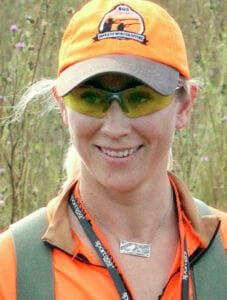 Heather, did you have those guys help you get the bull out?
Heather, did you have those guys help you get the bull out?
No, I ran into them briefly. There are pretty shaken up. They’re like, “Your bull’s right there,” and we parted ways. I had heard them cow calling throughout the week. I got a feeling someone else was in the area as well. That was the first time I had seen them. At that point, it was evening. I ended up going back to where I parked the truck back down the mountain and I went back into camp. I ended up retrieving the bull the next morning.
Did you call some of your buddies at fish and game or did you do it by yourself?
No, I didn’t tell many people I was out there either. I was by myself. It took some time. It was definitely a process. I’ve deer hunted before. Quartering a deer and unpacking that out is somewhat similar. It took me quite a while and luckily, I did have a quad at least that I could put everything on and then hauled it out.
Could you get the quad right to it?
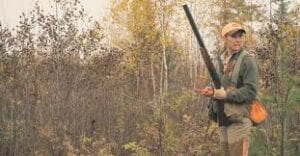 Not right to it. I got pretty close. It definitely helps. It wasn’t a full pack out on for my pack and a frame pack.
Not right to it. I got pretty close. It definitely helps. It wasn’t a full pack out on for my pack and a frame pack.
If you’ve ever hunted elk and been fortunate enough to harvest an elk to kill it and put it on the ground, it’s work. You need a lot of parachute cord, you need sharp knives and you need to be patient. What did you learn about taking apart your first elk?
It’s like anything, it’s a process. It’s a chess game. I was concerned about other predators in the area. Luckily, I was bow hunting. I wasn’t making a lot of noise. I wanted to get out of there before it was dark. I made the trek back to at least get back in and process and digest what had happened and what I’d gone through. It was a spiritual moment, honestly. It’s being able to know that I had harvested that animal and still had the opportunity myself and the knowledge to be able to know that I was going to take care of that game. Every piece of that animal is coming back with me was rewarding. Until someone has gone through that and challenge themselves and push themselves into conditions that they might not be familiar with and unknown territory, it tells you a lot about yourself and what you’re capable of.
Did you get it out with a headlamp?
Yeah, absolutely. I had a few backup headlamps too. I got it out and ended up leaving at night too. In the morning, that’s what I’m concerned about too. I was worried about predators being potentially on the end trail still moderately in the area. I tried to get them as far away as I could for the time being.
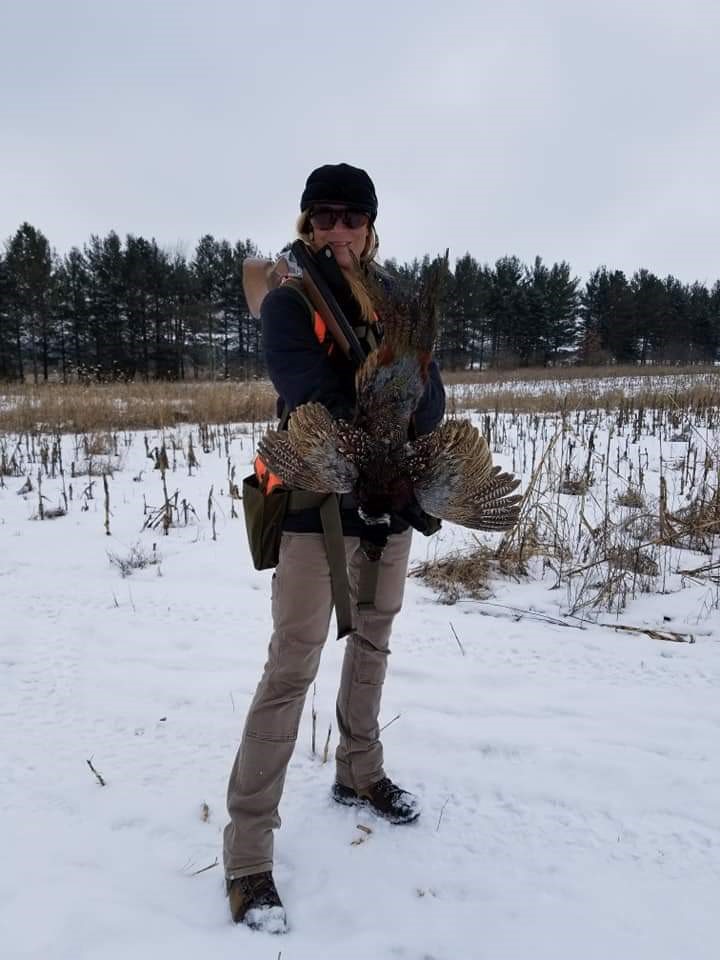
Did you hang any clothes? I’ve thrown jackets and I’ve peed around the whole area to get as much scent as I can to hang here. They’ll put their nose up because there are no people in the area. That’s a good thing to do. The only other question I had is hunting alone in today’s society, why don’t you carry up a small nine?
I don’t know why I don’t bring a sidearm on with me. Even now I bird hunt quite a bit with a dog that means the world to me in Wolf Country and Bear Country as well, which I’m not as concerned about bears. It’s something that I haven’t gotten into. I’ve been gaining some interest in a few pieces that are small and a little bit more manageable because the weight is everything too. I felt comfortable with my bow and in the few knives that I had on me as well that point time. In your twenties, I didn’t think about precautions and safety and other precautions that you should probably take. You do so much to prepare for something like this anyway. A lot of people might say something like, “It might not ever happen to me. Maybe I’ll never get into that experience.” That’s helpful too to know wildlife behavior as well and some signs to look for and being aware of my surroundings and making sure I wasn’t getting in any situation that could have been a bit cautionary. It just ended up working out for me in the long run.
In the heat of the moment, if you’re confronted with a dangerous situation, keep your cool and try to find the best route. Share on XOn situation awareness, unfortunately, I’ve been in the mountains of Colorado and run into people that are growing drugs in their arm. It’s like, “I don’t want to be here.” I have a concealed carry and I carry a small nine just because of that. I know guys that carry a nine on the side because things have changed in the mountains. You have to be cognizant of that. You mentioned situational awareness. Folks, heading out west, you got to be careful hunting on the national forest. If you see anything that doesn’t look like hunters, just get out or leave. Go to a different place because the confrontation isn’t worth it. That’s my two cents in that. Heather, through Extreme Huntress and all the things that you’ve seen, is there any conversations about situational awareness in public lands these days?
There is. That’s been a conversation that in the past was not highly regarded. As a woman in the outdoors, and anyone reading this as well, it’s something to consider. You have to be aware of your surroundings. We all know what we’re capable of, but in the heat of the moment, if you put it in and you are confronted with a dangerous situation, keep your cool and try to find the best route. It’s a chess game in trying to find the best way out of a scenario on a situation. It’s important. It’s interesting. There’s been a lot of conversations with females in the career field that I’m in as well.
I’m in public lands in the middle of nowhere in the backcountry. Some employees for state and federal agencies have had some run-ins as well and their stories are now coming to light. The conversation has changed in terms of threats that women might face in the outdoors. There’s definitely something to be cautious about. I would definitely not allow that to be in the back of anyone’s mind who’s interested in pursuing something or doing a hunt on their own and just going to a full DIY backcountry situation. You just need to do your homework and be aware of your surroundings. Stay on your toes and be safe.
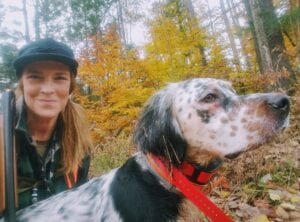 With that said, I wanted to go into the lines of doing the DIY hunts by yourself and how important that is for the development as a hunter, woman or man. I know that people that hunt have not maybe gone without a guide or gone without somebody taking them along. For me growing up, some of the biggest moments are the most learning moments when I was by myself and having to figure it out by myself. It’s not leaning or depending upon somebody else’s opinions. It’s this trial by fire out in the field and how much it brings to somebody and how much I would like to encourage people despite some of the things that you may encounter to go out on your own. Prepare yourself and go out on your own to try and hunt by yourself once you feel like you’ve got enough in your toolbox. Your elk hunting story brings it all together. It’s how you can do it and how important it is to spend time by yourself and to experience those things sometimes alone and where that takes you in life.
With that said, I wanted to go into the lines of doing the DIY hunts by yourself and how important that is for the development as a hunter, woman or man. I know that people that hunt have not maybe gone without a guide or gone without somebody taking them along. For me growing up, some of the biggest moments are the most learning moments when I was by myself and having to figure it out by myself. It’s not leaning or depending upon somebody else’s opinions. It’s this trial by fire out in the field and how much it brings to somebody and how much I would like to encourage people despite some of the things that you may encounter to go out on your own. Prepare yourself and go out on your own to try and hunt by yourself once you feel like you’ve got enough in your toolbox. Your elk hunting story brings it all together. It’s how you can do it and how important it is to spend time by yourself and to experience those things sometimes alone and where that takes you in life.
I could not agree more and that’s a good point, Meadow. I couldn’t encourage women and anyone for that matter enough to go out and find out what you’re capable of. At the same time, when you’re alone, you have an opportunity to learn that much more about an animal’s behavior. How are you going to set up and be tactful? It’s being able to pursue the game that you’re passionate about, whether you’re doing a duck hunt in a remote area or if you’re going in and the Northwood of the Great Lake States on a grouse hunt too. You learn a lot more about strategy, what habitat to look for, what signs and patterns at the wildlife are providing for you that you can utilize and use to the best of your ability to have a successful hunt and be able to continue to pursue that game and learn more about the animals that we are so passionate about hunting as well. I could not agree more. You learn a lot about yourself but also about the game that you pursue. You develop more of a respect for that species when you challenge yourself and put yourself in those scenarios.
I liken it to driving and riding the passenger seat. If you were to go somewhere and you have to figure out how to get there, you’re using a map or looking at your phone ahead of time and then you’re driving there. You have this experience where you’re driving and you’re learning as you go. You’re making decisions. You’re in the driver’s seat. If you’re the passenger, oftentimes you’re looking around, not paying attention. At least for me, I couldn’t half the time to find my way back if I was a passenger. It’s very much like that. It’s like if you drive and you’re experiencing it in a very impersonal manner rather than being someone that’s just taken along, you learn so much more as the driver than you do the passenger.
A lot of people miss out on truly learning from that experience by being taken by somebody else over and over again. I realized people are short of time and it’s important for them to have success sometimes in the field more than it is the experience. I feel like many people miss out by not being the driver and not being the one who makes the decisions or the one who ties the dots together. Just like an elk hunt where you’ve had multiple opportunities, you learn from each bull, you learn from each setup, then at some point it connects. It doesn’t matter what the end product is, as long as there’s an animal that’s been either high risk ethnically or nothing. As the driver or as the hunter by yourself, you learn so much more than if you’re being taken and how important it is to do those solo hunts for people.
Maybe more and like anything in life, you have to learn to take the reins in your hands. Take control of your situation. Those challenges keep us on our toes and we’re constantly learning. We’re always humbled and a student to the wildlife in the game that we pursue. The real true measures of success are while we push ourselves past those boundaries out of our comfort zone and drive into some new experiences.
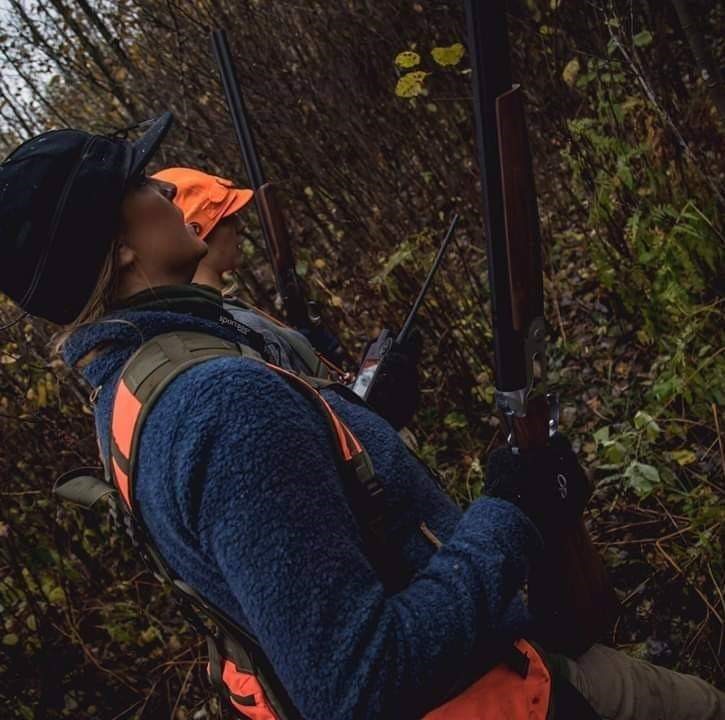
You’ve got a gun dog now who has helped change the dynamic at least. I know you had one before, but now you’ve got a setter. Can you tell me a little bit about your setter and the new adventures associated with having a setter?
There’s always an adventure, this is going to settle these folks in a good debate. You’re absolutely right. I got my first setter and his name is Chip. If any of you follow my social media adventures, there’s nothing but pictures of Chip essentially. He goes everywhere with me. He goes on a lot of different field visits and consultations and projects, job sites for my job. I’m fortunate to be able to travel with him and get a lot of windshield time. He’s come into his own now. It’s been a learning curve for me. I did have a lab prior to that. I’ve been duck hunting. I started duck hunting with a gun for probably seventeen years about.
Grouse hunting, I’m still fairly new to. I’m only about a decade in grouse something. Chip is my new setter. I feel as though with a different hunting style, I have as much to learn as he does. He’s been a fun guide dog to work with. There’s definitely a journey and we’re still on it and he’s still a young pup. I’m trying to get him as much exposure as possible in the states that we work within. I work within Michigan, Indiana and Ohio and then hunt within the Great Lake states as well. No matter, you and I have had some great opportunities to get our dogs out together in the Minnesota Northwoods too a few times. I am hopeful that that will continue too. It’s great to have them out for dogs and other people.
Right now, it’s all about the journey and the life of a young bird dog. It always has its thrills. We’re going a bit crazy right now in northern Michigan. It’s hard to work dogs and get out on some exposure. We had a fun opportunity to go on a women’s hunt and at least get out and do a walk-up hunt. We still instilled some birds scent into their nose during our break too during the offseason. Right now, we’re working on yard work and handling. I had been working with someone previously. I’ve received a lot of good advice from other folks in the dog community. The upland hunting community has been supportive and I’ve got some people that have given me some great advice.
Meadow, you are one of them too as an experienced dog handler and trainer. I’m finding my way. We’re getting our sea legs and I’m excited about what this season has in store for us. I’m loving the process of seeing him put the pieces together and also again, with situational awareness, trying to gauge how he’s going to approach a situation going into an area where we do have good bird context too because you never know. At this point in time, I can try to read the habitat and escape routes his body language as well and his behavior. At the end of the day, at the heat of the moment, some things connected to. It’s been great. Life with a bird dog is unmatched.
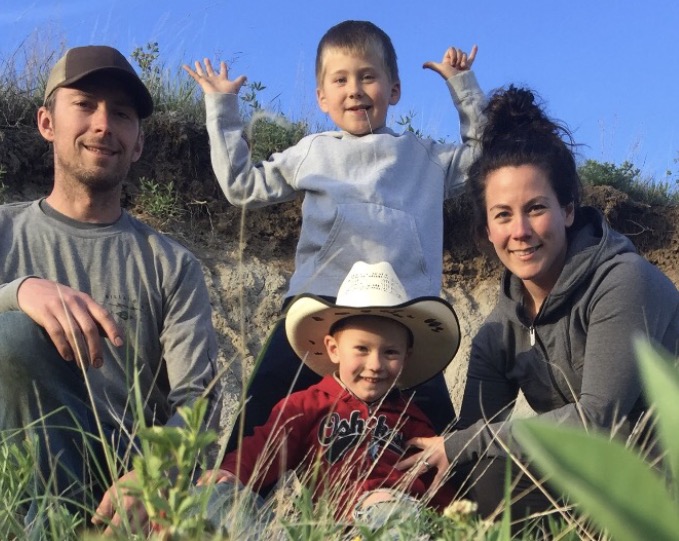
You mentioned the ladies hunt. I know that you get the opportunity to introduce women to hunting quite often, whether it’s introducing someone new or keep them interested in it through social media contacts or even perpetuating their exposure in the outdoors by taking them. What do you get from that? How does it make you feel? I get a lot from being able to share my passion and things that I love with other women and I have a feeling that you are on the same page in that regard.
That’s a thrilling experience and I know we’re both so passionate about getting women out in the outdoors. Getting that experience and that exposure is critical but making sure that it’s fun and that experience is also important. It is making sure that there’s a comfort zone created there for people in a comfortable learning environment where they’re not pressured. There’s no fear of judgment. As women, I know we can always be guilty of thinking that sometimes too, which we shouldn’t, but we do. It’s human nature. The biggest thrill for me is getting anyone new to the outdoors, but for women, hunts like that and experiences like that is unmatched and there’s a support system there that you don’t normally find in other activities. It’s like being a part of a team. You’re having that love of the outdoors and that passion for the outdoors and seeing the look on someone’s face when they have a successful hunt or the first time they’re working with a great bird dog. Just seeing a dog work and enjoying that camaraderie is phenomenal. It’s so heartwarming.
It’s something that I know you’re extremely passionate about and I am as well. It’s amazing to see women come into their own. The field is exploding. We’re the biggest growing demographic in hunters while we’re seeing declines in all other demographics as well across the board for folks that hunt and participate in the outdoors. Women are coming on strong and they’re fierce and are independent. They’re making a name for themselves and paving their own way. What a time to be a woman in the outdoors, passionate about hunting and angling, whatever it may be, whatever experiences that that people are pursuing. It is so motivating and it’s an amazing experience right now. I could not be more thrilled to be part of it.
You’ve come a long way even in the last decade. It is amazing to think of where you and I were maybe in our twenties and perspectives that I’ve dealt with. Then, I’m not necessarily sure why I was in the field. I may have told you the story before. I was in college and I was deer hunting in California where I went to college and these guys rolled up. I had hiked out of this hell hole of a canyon. They were like, “Where’s your husband? You need your husband or boyfriend to help pack this buck out.” They think I was lying that I was by myself and then I was hiding my boyfriend or husband’s deer. It was a weird experience. Now, those interactions are less and less. It’s a good feeling in that regard. Also, just to see the amount of support for women’s gear and shotguns.
You have a shotgun that is pretty specialized. I’m looking for left-handed versions of the shotguns I like. It’s nice to have options now. Whether its customized guns or guns that are made specifically for women. There’s a lot of wonderful things happening in regard to women being perceived more as hunters and outdoors people and also the opportunity to have gear that is specialized for us ladies. I’m feeling optimistic with the surge of participation and the number of women that I’ve met even in the last few years that are as outdoors-oriented and avid as you or I and just as hardcore. I hate to use that word, but it’s true. It’s been a very inspiring few years. It’s been great. I increased my involvement. How do you feel about that? Have you seen the same?
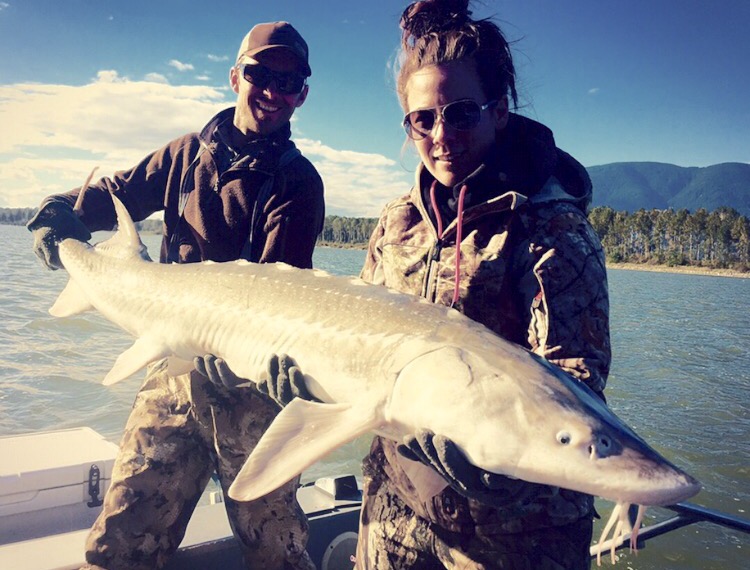
I couldn’t agree more. Women are blowing the lid off the things. They are shattering that glass ceiling if you want to phrase it that way with just deer in general. Companies like Prois, many years ago, companies like that didn’t exist. Many years ago when we started, I had a lot of hand me downs and things that didn’t fit. That’s awful. When you’re trying things that you need, it adds another layer of challenges too. Just to see the explosion of gear for women by women as well and companies, where these ladies are out sharing things and pursuing challenging game too and supporting other women, is phenomenal. The time to be a woman in the outdoors is right now. I could not agree more.
We still have some room to grow up. There’s still a huge opportunity and some niche markets that I think companies will start pulling and start capitalizing on. What better time than now. It seems like there are a huge need and a lower supply in some aspects of that as well. It’s all about marketing. There are still some things where companies may fall a little bit short and still maybe a little bit more judgmental towards ladies in the outdoors, but we are fully capable. Ladies are proving that more and more every day. It’s amazing. This is the time to be alive and this is the future of the next generation of hunters. It depends on where we go from here. There’s a lot of different roads that may lead us to additional successes in the future too. I look forward to it.
One of the things that always concerns me is we do have a lot of issues that we’re facing right now for conservation. There is the declining overall number of hunters and the need for the increase in recruitment of new hunters and how important it is for people that don’t necessarily open their doors to new hunters, to maybe consider being a mentor or getting involved with archery. If it’s something you truly care about, if you liked to hunt maybe, it’s something that a lot of folks should start picking up on more so than they have.
Mentors and volunteers, in general, are extremely difficult to come by. Oftentimes, there is a shortage when it comes to making that connection of bringing new hunters into the ranks, having someone that can teach them. It’s great to do it on your own and do things solo. Sometimes you need to start. You need someone who will guide you along in the beginning, at least build those foundational skills. Along those lines, maybe one of the things I wanted to touch on was the importance of mentors and how important it is that people take some time to take other folks out, people that wouldn’t otherwise have an opportunity to hunt or fish.
When you're alone, you have an opportunity to learn that much more about an animal's behavior. Share on XThere is a huge need for mentors out there. There’s a lot of people without the resources to be able to dive right into something and be able to find their way and swim through and learn the skill sets that they need to be successful and to develop that passion. Mentors play a huge key there. I would encourage anyone right now if they’re looking for someone, a friend, a family member, somebody you don’t know, there’s a lot of forums and other opportunities on social media where you can get plugged into folks like that. Conservation organizations like Pheasants Forever, the Ruffed Grouse Society, National Wild Turkey Federation offer a lot of mentorship opportunities too and numerous others that I won’t list at this point in time. For someone who has that passion, it might take someone to at least give them a leg up and give them that other opportunity that they may not be able to experience otherwise. Mentoring and taking new folks out is a huge passion.
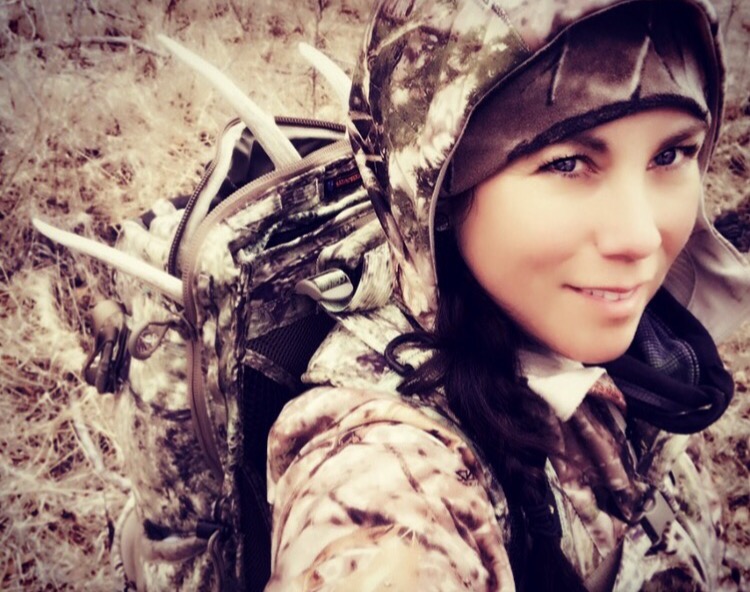
There’s a lot to be said for the people that dedicate their time into those archery efforts. It is the future. We are at the precipice right now with declining hunter numbers. Those individuals who are new to the sport or new to hunting and the outdoors or young within that maybe millennial time range of eighteen to 35 that may carry the future of hunting as a conservation tool into the future are key. We need to make sure that we’re addressing that, that we see them and that we’re at least providing opportunities for them wherever we can and whatever that model might look like too. There are some great programs out there right now and no model is perfect. I’m going to cross people providing opportunities to get new folks out in the outdoors and tried to teach them new skill sets. It’s an amazing ability that a lot of people have been taken advantage of. Meadow, I can’t tell you enough for your passion and the things that you’ve done for R3, not only for women, but other folks in the outdoors as well. You’ve been a leader there and it’s inspiring.
I feel lucky to be involved with where I am and the R3 Council and stuff. It’s certainly not me. It’s everybody that has been able to help and pitch in for these programs, especially those volunteers. As you know, the women’s intro is doing shooting programs. I started at RGS. It wouldn’t happen without the volunteers. You have to have local volunteers. It may ignite a little fuse but in reality, it comes down to people that are sharing and passionate and care enough about the future of the sport to volunteer their time without any payment other than gratification. Again, ultimately it boils down to those volunteers, those mentors and those programs that make it a success. I don’t know how to motivate people sometimes. I was surprised by my experience with Extreme Huntress. Even the popular vote online, how difficult it is even to get someone to take a few minutes to support something they believe in, much less show up and support people that are new to a sport by helping them develop skills over an hour or every couple of weeks. It’s extremely important to have those mentors.
One of the things that I notice a lot is the imposter syndrome. A lot of folks think that they’re not good enough at something to be able to teach it. I feel that way every day at the community college. I should be so much better at certain things. At the same way, I’m teaching someone to shoot or hunt or fish to some extent. I know I’m fully competent myself, but every once in a while, you get that twinge like, “Maybe I’m not good enough at this to do this.” It’s something a lot of educators deal with is this imposter syndrome, certainly for people that are maybe medium skill level or even beginner. They think that there’s no way that they can contribute to mentoring because they aren’t experienced enough or expert enough. One of the things that I always try and encourage people to do is share regardless of where you’re at. We all learn from each other, regardless of the teacher or the mentee. You’re constantly learning. It’s one of those things for everyone to realize that they can be a mentor one way or another, whether or not they’ve helped some with the basic skills all the way to polishing and experts. Bruce, what do you think?
If you have a partner, a wife, a daughter, a sister, get them in the outdoors and support them. I liked how you mentioned Heather about Kirstie Pike started Prois many years ago with basically an idea. She was tired of waiting for Steve’s hand me down guys clothes and they live in Gunnison, Colorado. She did two things. One, she brought women’s clothes to women, but she also became the CEO of a multimillion-dollar company. You mentioned glass ceilings and ladies. You have every single opportunity as any man out there. You have to have the passion, dedication, commitment and perseverance to do what your heart or your passion is. I would say that to our audience. The second thing I would ask you, ladies, if somebody wants to get ahold of you for follow up questions, how would they do that?
You can reach me in numerous ways. You can find me on Facebook and Instagram. On Instagram, it’s @HeatherShaw00. On Facebook, you’ll have to hunt and search in and try to find a picture of me with a shotgun in my hand. I would be more than happy to take some mentors out. My email is HeatherS@RoughedGrouseSociety.org.
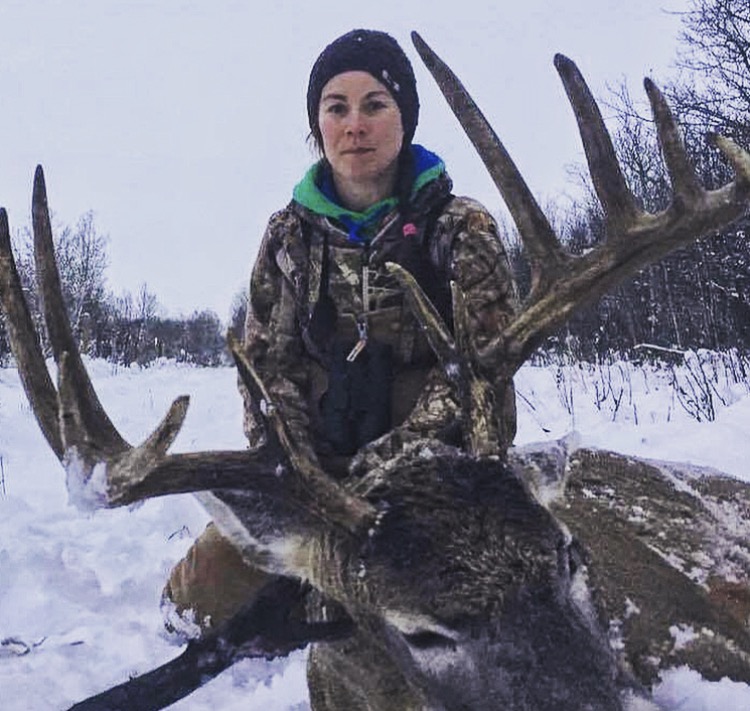
The same goes for me. You can get hold of me via Instagram and Facebook. My name is easy to search for on either of those platforms. Also, I can be found on the Itasca Community College website under staff and faculty. You’ll be able to get ahold of my email address there, Meadow.Kouffeld@ItascaCC.edu.
Bird hunting without dogs is nothing like hunting with dogs. I want to ask you both the question. What’s the magic there? I don’t like walk-up bird hunting where you don’t have a dog. When I had springers and goldens, I love the time whether we got game or not. It was a magic walk. Heather, you start off and then Meadow, share with the audience what the magic is of having a dog work birds for you.
The Ruffed Grouse Society and Project Upland work together to release a survey, an internal with member-only input and an external survey for folks that are not currently Ruffed Grouse Society members. The majority of them started bird hunting without a dog. That in itself is challenging. Some folks have had great success at it too. That in itself tells me about passion. Someone who’s that passionate, about the resource, about pursuing these birds, whether it be duck hunting or upland hunting, upland river hunting as well. You’ve got enough tact to get out there and still find a way to make it happen without the resource, because dog ownership can be costly and burdensome. It’s not potentially for everyone depending on where you live or what your scenario is. I give credit to those that still wear the boot leather down and pursue birds without a dog. Life with a bird dog is unmatched.
There’s something about that connection with that dog and seeing that dog work and spending time. When it’s me and my setter in the outdoors, life could not be much better. Depending on what the conditions might be at the end of the day, of course, I want to have as many bird contacts right now as possible. It’s all about spending time with man’s best friend and woman’s best friend too. I talked to a lot of people about the evolution of a hunter and that goes for dog owners as well, where at first you want to make sure that you’re flushing a lot of birds, you’re getting in contact with a lot of birds and your game bag comes home full. Then I talked to a lot of people and a lot of good friends of mine later in life and they’re in a different part of their hunting career where it’s more about the experience. The experience means everything to all of us too and the passion for the resource. They reached that point in time like all of us do where it’s more about seeing that dog work and that companionship rather than coming back with maybe a few birds in the bag too. It is incomparable.
I agree with Heather that it adds so much to the experience. For me, I’ve always had stalk dogs and hounds but didn’t get into bird dogs until later in life when I didn’t have chickens anymore. We had a lot of chickens growing up. We never had a bird dog. I started my quail and grouse pursuits without dogs per se; I had stock dogs. I’ve always had a partnership with a dog since I was a very young child and that partnership with a dog to accomplish a task and especially when it comes to hunting and working stock is something that I’ve always felt adds so much to my life and certainly to the experience. Before I had bird dogs, I got the chance to hunt at a few women’s pheasant hunting of course. I did hunt waterfowl a fair amount with some of my friends in college before I had a dog. The dogs add so much because you get to know them. They’re like individuals. They are individuals.
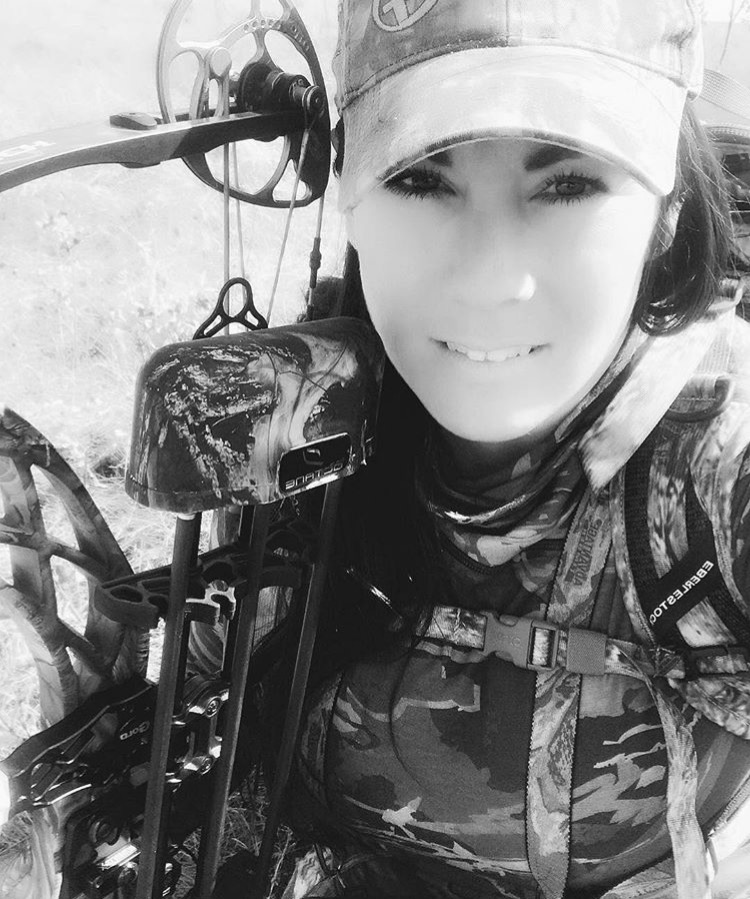
It’s to feel the emotion of watching them be happy and work hard and make mistakes and have success in that. Just to share that experience with a dog and know that they’re working for you and with you for an end goal in part is almost primeval. Humans and dogs have been together from twenty to 12,000 years. It’s something that’s so deeply ingrained in who we are to some extent. It’s almost like an important part of your life to have a hunting companion or partnership with the dog to accomplish a task. I feel bad for people who’ve lost touch with that because dogs have always been a part of my life. There were times when I couldn’t have dogs when I was in grad school and in college. I felt like a big piece of me was missing. There was a big hollow hole and dogs, especially gun dogs, bird dogs for some reason you have an even closer bond with them than you say a stockdog or a hound. They are a part of who you are after a while. It was inseparable.
I went to the University of Wisconsin-Lacrosse. Alex was my buddy and he was a Springer Spaniel. They’re not big dogs. He doesn’t have a lot of meat in him. I can remember going out into the islands on the Mississippi. I had a Grumman canoe and we’d hung out of that. We’d get up and I’d set up my decoys and everything and he’d just take off. I’d let him go and he would come back, and I hear a quack. He had got a wounded duck and then he brings it in. I don’t know if it was a hen. I would be mad at him. If it was a drake, I was happy. The hen wasn’t a good thing, but it didn’t matter. I was amazed because he knew exactly what he was there to do and he did it. He’s the greatest dog I ever owned, Alex. I got stories that that will go on forever about Alex.
That’s the thing about dogs. I echo what you both said because Alex is part of me. He is just an incredible dog and people said, “How did you get this good? How did you train them?” I trained him personally. I didn’t have him finished by a professional at all. I just trained him because he had that natural ability. He just wants to hunt, but he also wanted to please. He knew when he was doing his job and folks, we’re getting into deeper about gun ownership of dogs or dog ownership of a gun dog. You develop that bond that’s incredible. It’s an incredible feeling and you put the hours into them, then you’d go on the field and then you see them work. You see them do everything that you’ve asked him to do and more. It’s amazing. That’s my two cents.
Being a relatively new mother, it’s very much like parenthood. You’re proud to see the work that you’ve put in together turn into something great, not only game finding, but game recovery. Like your dog, retrieve wounded animals that maybe not even as a result of your actions. To me, it’s like a proud parent moment when I do as good as they do. Even those moments where they do things that aren’t so great, it’s a very emotional experience owning a dog.
I told you guys about this women’s puzzle hunt that I was on and I couldn’t agree with both of you more either. I am quite obsessed with hunting. It is a huge part of my life. We’ve gone through a lot together and I’m excited about what the future holds for us. We were out on this women’s hunt and I was with another lady, another woman who was I think it’s the fifth time that she had been hunting. I was with this youngster as well. We had Chip out. We were fuzz hunting and Chip slams on point a gorgeous point, prim honored and I didn’t have shoulder my gun. I was just pumped because I was so happy and so proud at that moment. I was elated that we had good dog work. Seeing the pieces come together for a young pup in training too, it was worth all of that for me as well. We did end up still harvesting the bird who was a nice rooster. It was just all about seeing those pieces come together and seeing them figure the world out with you right there next to them.
It’s a marvelous thing. Ladies and guys, if you can’t get a dog, that’s okay. Go with a person that has a well-trained dog and you’ll have the time of your life hunting, upland bird, hunting waterfowl and hunting sage grouse out west wherever you’re hunting. A dog makes it better. That’s what I would categorically state. Do you have more questions for Heather?
We’re good right now. I’d certainly love to revisit with Heather about some other things in the future. I appreciate you taking the time now, Heather. It’s been a real treat to be able to connect with you again.
Thank you both so much. It’s been a great experience. I’m looking forward to this series and seeing what other ladies who have on the show. I can’t thank you enough for bringing me on your first one. It’s been wonderful and I’d love to revisit a few things down the road too.
Challenges keep us on our toes where we're constantly learning and we're always humbled. Share on XWe deserve to give Meadow a hand clap on that. What do you say, Heather? Well done, Meadow. I’ll just echo where the series goes. For the ladies, if you want to be on the show, just reach out to WhitetailRendezvous@Gmail.com. Meadow, what’s your email address?
My personal email address is MeadowJean@Gmail.com. If you were interested in the program specifically and coming on with Bruce, please reach out to me at my personal email account or through social media, Facebook or Instagram.
With that, we’re going to close this inaugural edition of ladies of Whitetail Rendezvous. Thank you so much, ladies.
Thanks, Bruce. Thanks, Heather.
Important Links:
- Extreme Huntress
- Ruffed Grouse Society
- American Woodcock Society
- Prois
- Pheasants Forever
- Ruffed Grouse Society
- National Wild Turkey Federation
- HeatherShaw00
- Heather Shaw Facebook
- Meadow Kouffeld Instagram
- Meadow Kouffeld Facebook
- Itasca Community College
- https://www.Facebook.com/Heather.Shaw.142687 https://www.Instagram.com/HeatherShaw00/?hl=en
- HeatherS@RoughedGrouseSociety.org.
- Meadow.Kouffeld@ItascaCC.edu
- WhitetailRendezvous@Gmail.com
- MeadowJean@Gmail.com
About Heather Shaw
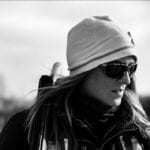 Heather Shaw is a Wildlife Biologist for the Ruffed Grouse Society and American Woodcock Society in Michigan. As a Michigan native who received her master’s degree in Conservation Biology, she currently works with state and federal agencies to enhance wildlife habitat on public lands.
Heather Shaw is a Wildlife Biologist for the Ruffed Grouse Society and American Woodcock Society in Michigan. As a Michigan native who received her master’s degree in Conservation Biology, she currently works with state and federal agencies to enhance wildlife habitat on public lands.
Heather grew up in a life of rodeo and angling but did not start hunting until her early 20s, since then she has predominantly been self-taught when it comes to the game that she enjoys hunting.
She previously lived in Wyoming and North Dakota where she pursued big game, waterfowl, and upland game birds and now spends most of her free time in the Michigan Northwoods chasing ruffed grouse, sharp-tailed grouse and American woodcock with her Llewellin setter, Chip. She is passionate about educating the public on hunting as a conservation tool and frequently speaks to organizations all over the region.
She loves to spend time with people new to the outdoors and hunting and is ecstatic to see a rise in women in the outdoors.
Heather Shaw Wildlife Biologist Eastern Great Lakes Region (MI/OH/IN) The Ruffed Grouse Society/American Woodcock Society
